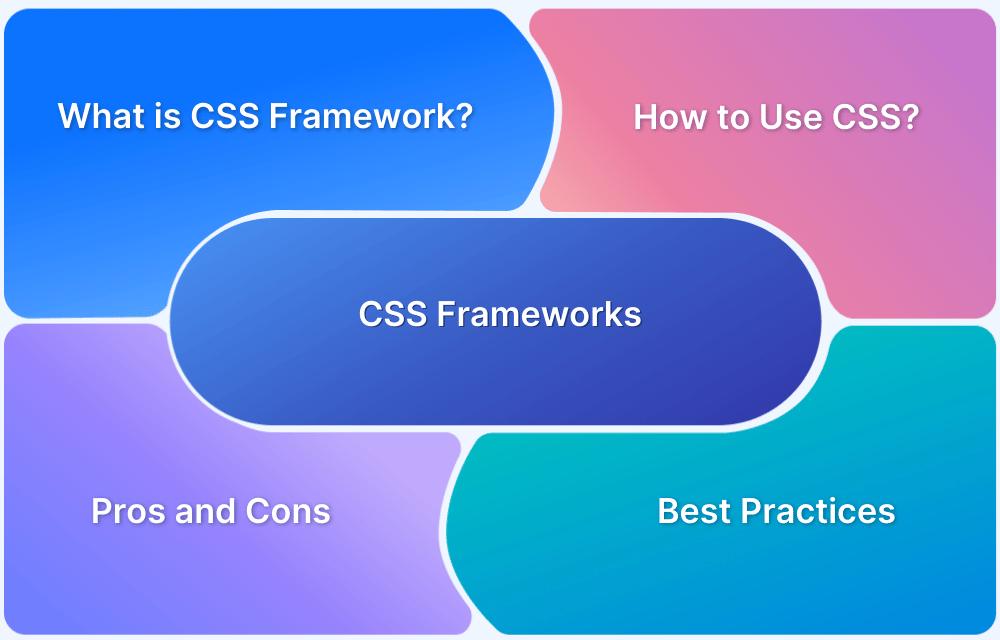Digital Insights Hub
Your source for the latest trends and insights in digital technology.
Frameworks That Make You Forget CSS Exists
Discover powerful frameworks that simplify your web design so much, you’ll forget all about CSS! Unlock design freedom today!
Top 5 CSS Frameworks That Simplify Web Development
In the ever-evolving field of web development, leveraging the right tools can significantly enhance productivity and efficiency. CSS frameworks are pivotal in this regard, as they provide pre-designed styles and components that streamline the development process. Here are the Top 5 CSS Frameworks that can simplify your web development experience:
- Bootstrap: One of the most widely used CSS frameworks, Bootstrap offers a comprehensive set of pre-styled components, grid systems, and responsive design tools.
- Foundation: Developed by ZURB, Foundation is known for its flexibility and customizability, making it ideal for advanced users.
- Bulma: This modern CSS framework is based on Flexbox, providing a clean and elegant design while being easy to use.
- Tailwind CSS: Unlike traditional frameworks, Tailwind promotes a utility-first approach, giving developers greater control over their designs.
- Semantic UI: Emphasizing human-readable HTML, Semantic UI makes it easier for developers to create beautiful and responsive layouts quickly.

How to Build Responsive Websites Using CSS Frameworks
Building responsive websites is crucial in today's digital landscape where users access content on various devices. Using CSS frameworks like Bootstrap or Foundation can significantly streamline this process. These frameworks provide a predefined structure for your layout, helping to ensure that your website looks great on screens of all sizes. To start, you can download a CSS framework and include it in your project. Here are a few steps to get you going:
- Choose a CSS framework that suits your project.
- Include the framework files in your HTML.
- Utilize the grid system to create a responsive layout.
Once you've set up your framework, focus on responsive design principles such as fluid grids, flexible images, and media queries. This will help your website adapt seamlessly to various viewports. Remember to test your design thoroughly on different devices and browsers to ensure that it maintains its integrity. Tools like browser developer tools or online services can aid you in checking the responsiveness of your site. By leveraging the power of CSS frameworks, you can create a functional and visually appealing responsive website efficiently, allowing you to focus more on content and functionality.
Do CSS Frameworks Really Make Styling Easier?
CSS frameworks have become an integral part of modern web design, offering a pre-defined set of styles, components, and grid systems that streamline the process of creating visually appealing websites. One of the primary advantages of using a CSS framework is the consistency it brings to a project's design. By adhering to a framework, developers can ensure that their styling remains uniform across different pages and components, reducing the likelihood of unintended discrepancies. Additionally, frameworks often come with built-in responsive design features that make it easier for developers to create websites that adapt seamlessly to various screen sizes, further simplifying the styling process.
However, while CSS frameworks can certainly make styling easier, they are not without their drawbacks. Some developers argue that relying on frameworks can lead to a lack of customization and creativity, as projects can often end up looking template-like if not tailored properly. Furthermore, frameworks may come with unnecessary features that bloat a website's CSS file, affecting performance. Ultimately, whether or not a CSS framework truly makes styling easier depends on the specific needs of a project and the proficiency of the developer. Understanding when to embrace a framework and when to forgo it is key to achieving an efficient and effective web design.